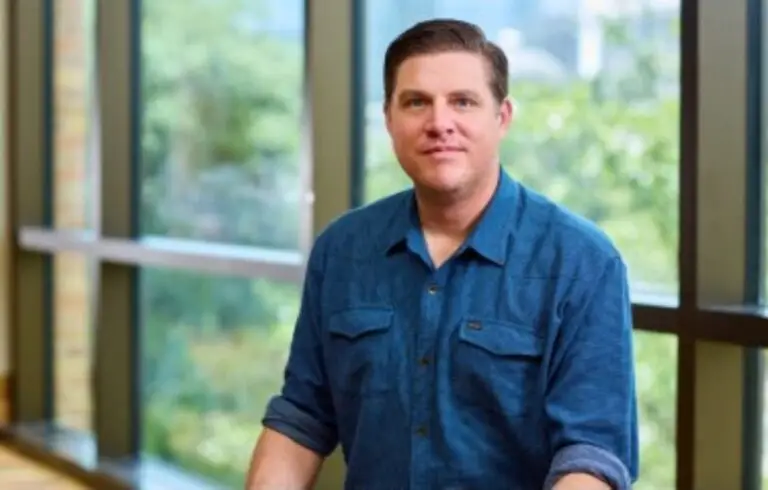Editor’s Note: With a bevy of stressors, every CEO knows—and fears—the truth about this job. It can be a killer. That’s led Chief Executive to team with the renowned faculty at Mayo Clinic Executive Health to help you rethink some of the most important—and too-often overlooked—aspects of maintaining good health as CEO. We’ve collected the articles in a growing library. We hope you find this new initiative useful. — Dan Bigman, editor
Who hasn’t been hurt by the actions or words of another? Perhaps a parent constantly criticized you growing up, a colleague sabotaged a project or your partner had an affair. Or maybe you’ve had a traumatic experience, such as being physically or emotionally abused by someone close to you. These wounds can leave lasting feelings of resentment, bitterness and anger—sometimes even hatred.
But if you hold on to that pain, you might be the one who pays most dearly. By embracing forgiveness, you also can embrace peace and hope. Consider how forgiveness can lead you down the path of physical, emotional and spiritual well-being.
What is forgiveness?
Forgiveness means different things to different people. But in general, it involves an intentional decision to let go of resentment and anger.
The act that hurt or offended you might always be with you. But working on forgiveness can lessen that act’s grip on you. It can help free you from the control of the person who harmed you. Sometimes, forgiveness might even lead to feelings of understanding, empathy and compassion for the one who hurt you.
Forgiveness doesn’t mean forgetting or excusing the harm done to you. It also doesn’t necessarily mean making up with the person who caused the harm. Forgiveness brings a kind of peace that allows you to focus on yourself and helps you go on with life.
What are the benefits of forgiving someone?
Letting go of grudges and bitterness can make way for improved health and peace of mind. Forgiveness can lead to:
- Healthier relationships.
- Improved mental health.
- Less anxiety, stress and hostility.
- Fewer symptoms of depression.
- Lower blood pressure.
- A stronger immune system.
- Improved heart health.
- Improved self-esteem.
Why is it so easy to hold a grudge?
Being hurt by someone, particularly someone you love and trust, can cause anger, sadness and confusion. If you dwell on hurtful events or situations, grudges filled with resentment and hostility can take root. If you allow negative feelings to crowd out positive feelings, you might find yourself swallowed up by bitterness or a sense of injustice.
Some people are naturally more forgiving than others. But even if you tend to hold a grudge, almost anyone can learn to be more forgiving.
What are the effects of holding a grudge?
If you struggle with finding forgiveness, you might:
- Bring anger and bitterness into new relationships and experiences.
- Become so wrapped up in the wrong that you can’t enjoy the present.
- Become depressed, irritable or anxious.
- Feel at odds with your spiritual beliefs.
- Lose valuable and enriching connections with others.
How do I move toward a state of forgiveness?
Forgiveness is a commitment to change. It takes practice. To move toward forgiveness, you might:
- Recognize the value of forgiveness and how it can improve your life.
- Identify what needs healing and who you want to forgive.
- Join a support group or see a counselor.
- Acknowledge your emotions about the harm done to you, recognize how those emotions affect your behavior and work to release them.
- Choose to forgive the person who’s offended you.
- Release the control and power that the offending person and situation have had in your life.
What happens if I can’t forgive someone?
Forgiveness can be hard, especially if the person who hurt you doesn’t admit wrongdoing. If you find yourself stuck:
- Practice empathy. Try seeing the situation from the other person’s point of view.
- Ask yourself about the circumstances that may have led the other person to behave in such a way. Perhaps you would have reacted similarly if you faced the same situation.
- Reflect on times when others have forgiven you.
- Write in a journal, pray or use guided meditation. Or talk with a person you’ve found to be wise and compassionate, such as a spiritual leader, a mental health provider, or an impartial loved one or friend.
- Be aware that forgiveness is a process. Even small hurts may need to be revisited and forgiven again and again.
Does forgiveness guarantee reconciliation?
If the hurtful event involved someone whose relationship you value, forgiveness may lead to reconciliation. But that isn’t always the case.
Reconciliation might be impossible if the offender has died or is unwilling to communicate with you. In other cases, reconciliation might not be appropriate. Still, forgiveness is possible—even if reconciliation isn’t.
What if the person I’m forgiving doesn’t change?
Getting another person to change isn’t the point of forgiveness. It’s about focusing on what you can control in the here and now. Think of forgiveness more about how it can change your life by bringing you peace, happiness, and emotional and spiritual healing. Forgiveness can take away the power the other person continues to have in your life.
What if I’m the one who needs forgiveness?
The first step is to honestly assess and acknowledge the wrongs you’ve done and how they have affected others. Avoid judging yourself too harshly.
If you’re truly sorry for something you’ve said or done and want forgiveness, consider reaching out to those you’ve harmed. Speak of your sincere sorrow or regret. Ask for forgiveness without making excuses.
You can’t force someone to forgive you. Others need to move to forgiveness in their own time. Remember, forgiveness is a process. Whatever happens, commit to treating others with compassion, empathy and respect.







